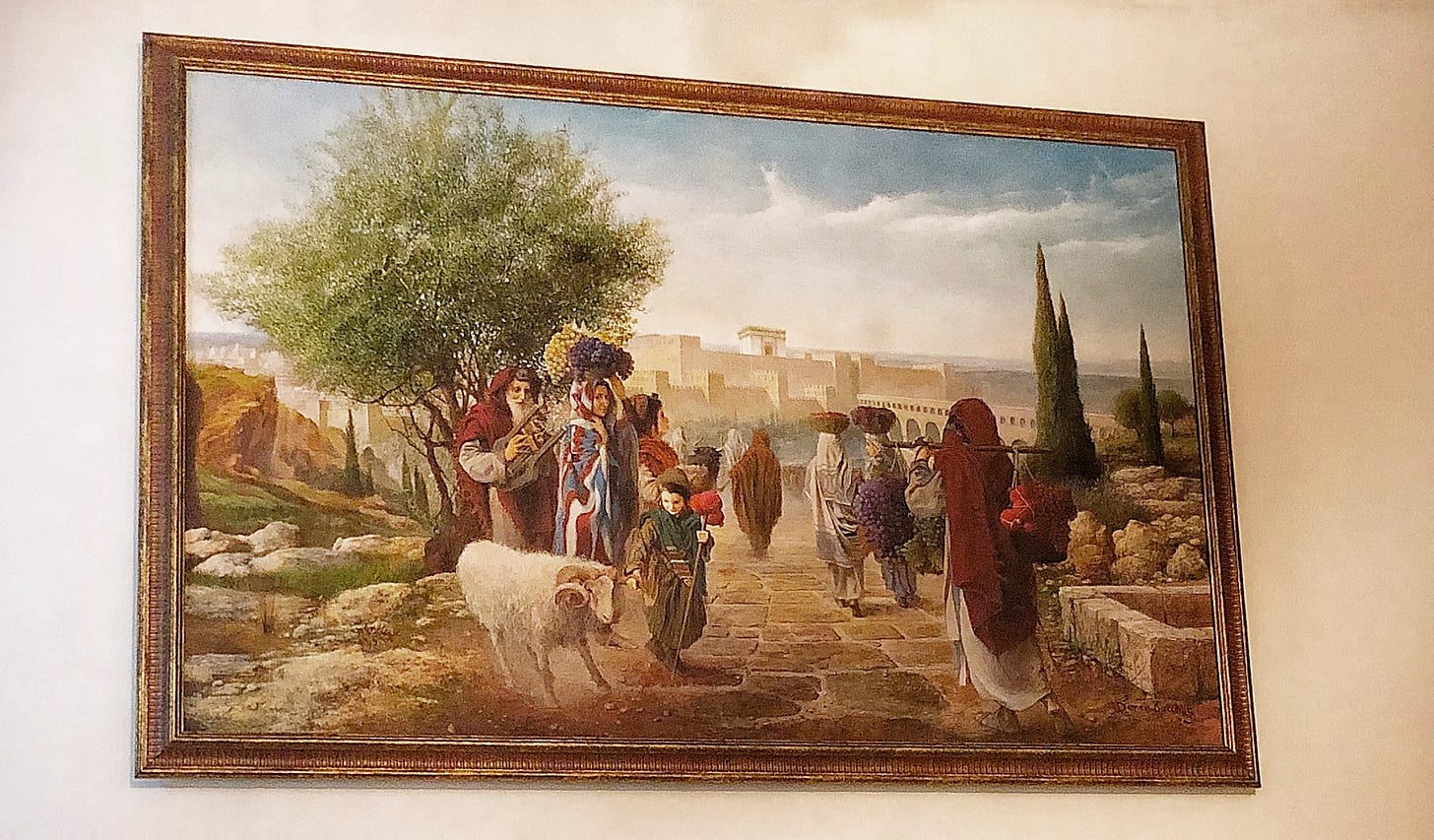Give It All You Got
A thought for Parashas Ki Savo
I have a beautiful painting in my home that depicts Jews carrying baskets of fruit to Jerusalem to offer to the Kohanim for Bikkurim. This artwork always fires up my imagination, making me long for those extraordinary days. I can almost see the scene: thousands of Jews making their way toward Jerusalem, their wagons overflowing with fruit, and presenting it to the Kohanim while reciting the special Bikkurim prayer.
So I was taken aback when I learned the Tiferes Shlomo by Rav Shlomo Radomsker. He says that a Jew may bring just two or three dates in his basket as an offering, and even with this small gift, he earns the privilege to say the thanksgiving proclamation. This made me wonder: where are the bundles and the overflowing wagons I had imagined? Why would someone bring only a few dates?
The Radomsker explains that a tzaddik, has the unique ability to elevate prayers to Hashem. The purpose of bringing the Bikkurim to the Kohen, who serves as the generation's tzaddik, is to allow him …




